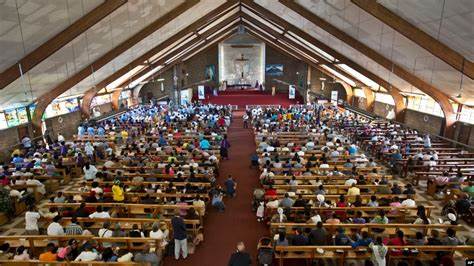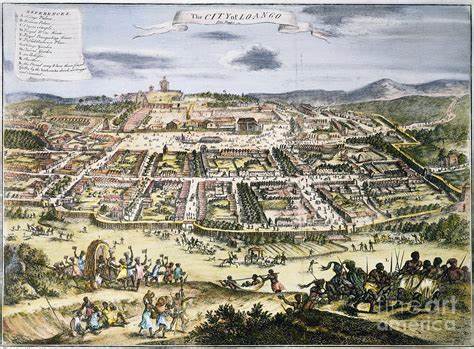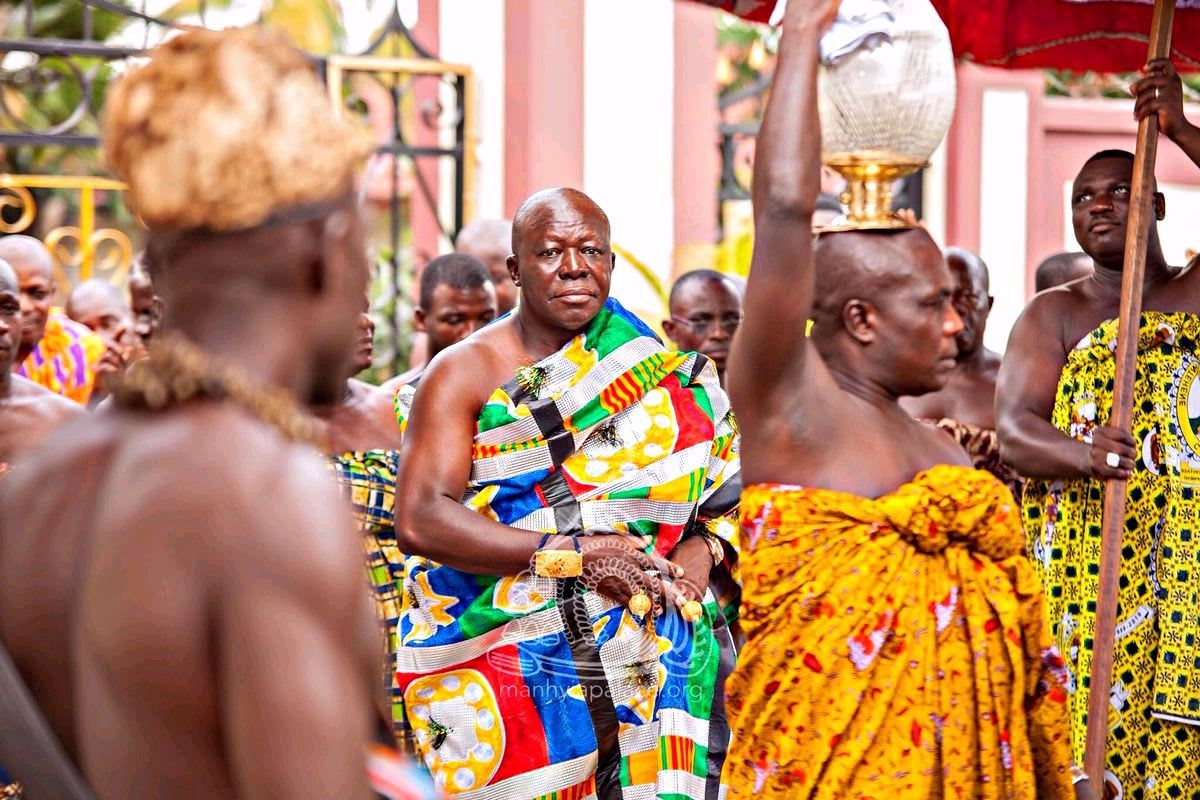Today, Africa is home to over 600 million Christians, making about a quarter of the world’s Christian population. According to a 2019 report by evangelical church group The Gospel Coalition (TGC), Africa had about 30% of the world’s evangelicals, 20% of the world’s Pentecostals and charismatics and 15% of the world’s Roman Catholics. This is in addition to the large Orthodox Christian population in the Eritrean and Ethiopian Orthodox Tewahedo Churches and the Coptic Orthodox Church of Alexandria (Egypt).
While many attribute the spread of Christianity in Africa to colonialism, the origins of the religion on the continent actually date much further back.
In the Beginning…
Looking into the Bible’s historical accounts, it was found that Africans were part of the early church and the continent was one of the first world regions to receive the Gospel—the basis of the Christian faith. An account of the encounter between Phillip, an apostle, and an Ethiopian eunuch who was said to be the treasurer of Queen Candace of Ethiopia, was recorded in Acts 8:26-39. The Ethiopian Eunuch became a Christian convert and likely returned to his hometown, which is estimated to be Meroe in modern day Sudan.
Simon, who was recorded to have helped Jesus carry his cross to the crucifixion ground in Luke 23:26, was from a Greek city called Cyrene in the province of Cyrenaica in modern Libya. The region had a large Jewish community as 100,000 Jews from Judaea had been forced to settle there during the reign of Macedonian Greek emperor Ptolemy Soter in 323-285 BC. The large Jewish population would later form the bedrock of the spread of Christianity in the region.
Early Christianity in North Africa
Moreso, the Coptic Orthodox Church of Egypt attributes the spread of Christianity in Africa to Mark the apostle, who reportedly went to evangelise in Alexandria in 60 AD. Alexandria, the second largest city in modern Egypt, became a hub for the continental development of Christianity, spearheaded by Mark who served as a bishop. Systems, structures and schools were established to foster the growth of the religion. One of such notable schools was the Catechetical School of Alexandria which was founded towards the end of the 2nd century AD by Clement of Alexandria, AKA Titus Flavius Clemens. This school would become a major centre for theological study and interpretation of the Bible.
Alexandria produced many notable Christian scholars like Clement of Alexandria and Tertullian, who is widely regarded as the Father of Western Theology. From Alexandria, Christianity spread to another North African city called Carthage in modern Tunisia. In fact, Carthage, which was the centre of the Roman province in Africa, is widely regarded as a centre of early Christianity.
Tertullian, who was from Carthage, even came up with the term “Trinity”, a fundamental Christian tenet which asserts that the single Godhead is made up of three distinct persons, God the Father, the Son (Jesus Christ) and the Holy Spirit. The doctrine is denoted throughout the Bible and was already widely accepted by many Christian theologists. However, Tertullian was the first person known to have used the Latin word “Trinitas” to refer to the doctrine in writing. Tertullian also taught Bishop Cyprian of Carthage and Bishop Augustine Hippo, two very important figures in church history.
Since North Africa was largely under Roman rule, Latin was the language used to spread Christianity in the region. Monasticism started in Egypt, before being spread to the Latin-speaking church of Northwest Africa.
While the Roman empire essentially acted as a catalyst for Christianity’s spread in the subcontinent, the Roman leaders were actually opposed to it as they saw it as a religion of dissent to their rule. Consequently, they opposed the religion, forcing the people to practice it covertly. Ironically, this persecution bolstered the spread of the religion even more.
Christianity thrived in North Africa for centuries, but took a backseat in the 7th century when Islam was introduced from the neighbouring Arabian Peninsula. Not long after Prophet Muhammad died in 632 AD, the latter religion was brought to the subcontinent by Arabs and soon became deeply entrenched in society. In 698 AD, the Muslim Umayyad army from Egypt destroyed Carthage and effectively ended Roman and Christian rule in Northwest Africa. Still, there is sizeable Christian population in the region.
Early Christianity in East Africa
While Christianity was flourishing in North Africa, the religion was also growing in the kingdoms of Nubia, in modern Sudan, and Ethiopia. Nubia is one of the two countries that claim to be the world’s oldest Christian nation—the second being Europe’s Armenia.
In the 4th century, King Ezana of Aksum, a land in ancient Ethiopia and Eritrea, made Christianity the official religion of his kingdom. King Ezana had been taught about Christianity by a Syrian missionary called Frumentius. Other Syrian monastic missionaries, most notably “The Nine Saints”, also influenced the spread of Christianity in the region and spurred some important popular Christian movements.
On the other hand, the spread of the religion in Nubia was spurred by Jewish converts, but didn’t see as much growth as it did in Ethiopia. Between 1200-1500, Ethiopia’s Zagwe dynasty—a family of Christian kings—revived Christian art, literature and the expansion of the church. Lalibela, regarded as the greatest emperor of the Zagwe dynasty, even took this a step further. He went as far building 11 famous stone churches to create a “new Jerusalem”.
However, in 1270, a new Solomonic dynasty replaced the Zagwe dynasty. The former dynasty was inaugurated by Melenik I, who was said to be the first emperor of Ethiopia, and was the son of the biblical King Solomon and Makeda, the Queen of Sheba. Accordingly, this family line was seen as the rightful dynasty. In the 15th century, the dynasty reached its peak with Zara Yaqob at its helm. Yaqob convened church councils for theological debates and even purged Ethiopia of African traditional religion.
Concurrently, Christianity was being snuffed out in Nubia as the territory’s indigenous forces were defeated in a battle led by a sultan of Cairo called Babyars 1. Following the defeat, Nubia came under the control of the Muslim Egyptians and by 1500, Christianity in the country was virtually non-existent.
The Spread to the Rest of Africa
While we have established that Christianity was not planted in Africa by the “White Man”, it would be ignorant and disingenuous to downplay the influence of colonialism and slavery in its continental spread. European countries came to take charge of African territories and largely used the guise of Christianity to subjugate Africans.
From 1420 until 1800, Portuguese politics and Christian missionaries dominated much of Africa’s 38 coastal countries. There was a constant tussle between Portuguese slave traders and missionaries for African lives—the former hoping to ship them off to foreign shores as slaves and the latter hoping to save them. In the end, the missionaries were too few to make a long-lasting impact, so their efforts only resulted in a small spread of Catholic Christianity. However, in modern Congo and Angola, the religion took root and clashed with the traditional religions.
In the 15th and 16th centuries, West African trade associations with Europeans opened them up to religious influence, alongside their commercial exchange. Additionally, in the 18thcentury, the rest of Africa saw a major influx of Christian missionaries from the western world whose evangelical work was more successful.
But the real gamechanger happened with the colonisation of the continent. Colonisers demonised indigenous African cultures and practices and presented their version of Christianity as the only path to follow, regardless of how oppressive it was.
Eventually, African Christians were able to break free from such oppression and reform the local church, forming African Independent Churches. Today, Christianity in Africa, especially Pentecostalism, has taken a life of its own that is largely divorced from European influence.
The topic of Christianity in Africa is one of nuance, having in many ways been tainted by the White man’s abhorrent actions, but having also brought education, literacy and development through European missionaries. More importantly, the message of Christianity is one of hope that many disadvantaged Africans have been able to latch on to over the years.










